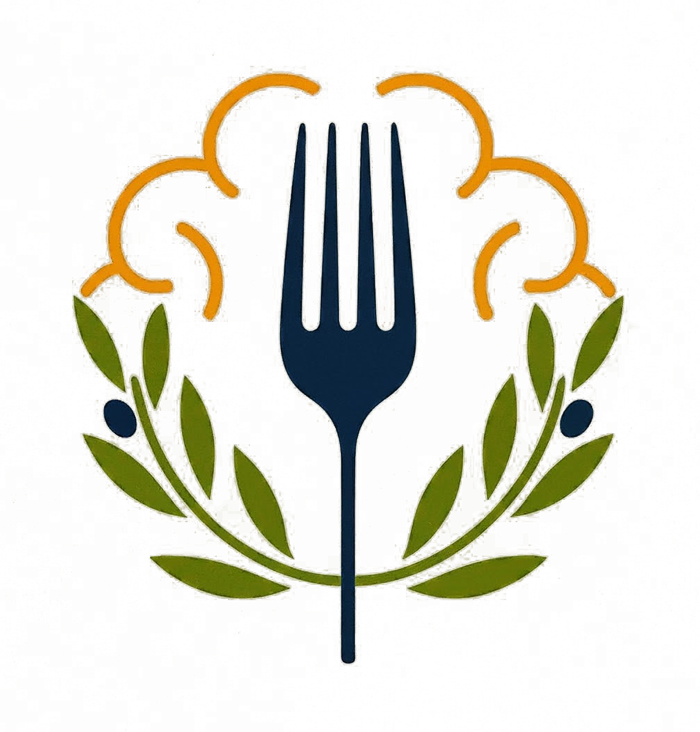Harmonizing Your Brain, Mind, and a Mindful Feasting Lifestyle
- Dov Glazer
- Jun 12
- 4 min read
Updated: Jun 13

We often think of changing our eating habits as simply a matter of willpower or following rigid rules. But what if the key to a sustainable and enjoyable approach to food lies in understanding the powerful interplay between your physical brain and your conscious mind, and how they perform the "music" of your daily eating? In this post, we'll explore the compelling analogy of the brain as hardware and the mind as software, and then see how this sets the stage for the beautiful performance of a Mindful Feasting Lifestyle, much like a musician playing an instrument.
The Biological Machine: Your Brain as Hardware
Imagine your brain as the incredible hardware of a sophisticated computer. Nestled within your skull, this intricate organ is a physical network of billions of neurons, constantly firing and communicating. Just like a computer's central processing unit (CPU), random-access memory (RAM), and hard drive provide the physical infrastructure for all its operations, your brain provides the biological foundation for every thought, feeling, and action you take – including how you approach food.
Physical Foundation: Your brain's structures, from the control centers for hunger and satiety to the regions involved in memory and emotion, are the tangible components influencing your eating behaviors.
Processing Power: The complexity of your neural connections dictates your capacity to process information, including sensory cues from food and internal signals of hunger and fullness.
Biological Limits: Just like a computer's hardware has limitations, your brain's biology can be affected by factors like stress, sleep, and overall health, which in turn can influence your food choices and eating patterns.
The Power of Thought: Your Mind as Software
Now, envision your mind as the dynamic software running on this biological hardware. Unlike the physical brain, your mind is the non-physical realm of your thoughts, emotions, beliefs, perceptions, and consciousness. It's the operating system that interprets the signals from your brain and dictates how you interact with the world – including your relationship with food.
Guiding Programs: Your mind houses the "programs" that shape your eating habits – your learned preferences, cultural associations with food, emotional responses to eating, and beliefs about nutrition and dieting.
Interpretation and Action: Your mind interprets sensations of hunger and fullness, processes thoughts about food, and ultimately drives your decisions about what, when, and how much you eat.
Adaptability and Change: Just as software can be updated and reprogrammed, your mind is capable of learning, adapting, and changing your perspectives and behaviors around food through conscious effort and new experiences.
Making Music: The Mindful Feasting Lifestyle as the Musician and the Instrument
Now, let's bring these concepts together with the Mindful Feasting Lifestyle. Think of your body as the instrument and your mind as the musician (or the music being played). A beautiful piece of music only emerges when the musician understands and skillfully plays the instrument. Similarly, a harmonious and nourishing eating lifestyle blossoms when your mind (the musician) consciously engages with your body (the instrument).
The Mindful Feasting Lifestyle is the "music" you create when your mind updates its "software" to play your body's "instrument" with awareness and intention:
Tuning Your Instrument (Recognizing Hunger and Fullness): Just as a musician tunes their instrument before playing, the Mindful Feasting Lifestyle teaches your mind to accurately "tune in" to your body's physical signals of hunger and satiety. This means truly hearing your body's cues, rather than letting old "software programs" (habits, emotions) dictate when and how much you eat.
Mastering the Score (Challenging Limiting Beliefs): Many of us carry old "scores" – deeply ingrained beliefs about food and our bodies that might be out of tune. This lifestyle helps you identify and rewrite those mental "programs," allowing your mind to compose a more empowering and supportive "musical piece" around food.
Playing with Presence (Cultivating Awareness): A great musician is fully present with their instrument and the music. The Mindful Feasting Lifestyle encourages your mind to engage fully with the experience of eating – savoring flavors, noticing textures, and appreciating nourishment – making each meal a conscious performance.
Improvising with Emotion (Managing Emotional Eating): Sometimes, emotions might make us want to hit the wrong notes. When your mind's "software" is running programs that link food to comfort or stress relief, you might eat for emotional reasons. Mindful Feasting teaches you to recognize these emotional "riffs" and respond by choosing healthier actions, much like a musician skillfully improvises without losing the melody.
Composing a Symphony of Well-being (Healthy Relationship with Food): Ultimately, this lifestyle is about transforming your mental relationship with food into a beautiful symphony. It's about updating your internal "operating system" and honing your "musician" skills to foster respect for your body, deep appreciation for nourishment, and a sense of calm and control around eating that resonates through your entire life.
Harmonize Your Eating, Harmonize Your Life
Understanding the brain as the physical hardware and the mind as the dynamic software offers a powerful framework. When you then view your body as the instrument and your mindful engagement as the musician, you can truly begin to compose a Mindful Feasting Lifestyle. It's not just about changing what you eat; it's about transforming how your mind "plays" your body, creating a harmonious and joyful experience with food that enriches your entire life.
What "music" do you want to create with your mindful eating? Share your thoughts below!




Comments